Interviews
Interviews
-
“We Find the Authenticity of Real Locations to Be Such a Huge Factor in Making a Believable and Captivating Movie”: DP Benjamin Kirk on Watcher

Shot on both vacant streets and luxury apartments in Bucharest, Watcher examines a woman uncertain whether to trust her instincts as she begins to suspect that someone—possibly a neighbor—is stalking her. As DP Benjamin Kirk explains, the camera embodies the state of mind of Julia, heightening the audience’s sense of peril, and films by David Fincher and Roman Polanski were touchstones for both Kirk and director Chloe Okuno. Filmmaker: How and why did you wind up being the cinematographer of your film? What were the factors and attributes that led to your being hired for this job? Kirk: Director Chloe Okuno and […]
-
“Even if You Are Cutting a More Commercial Film, the Inspiration You Can Find From Obscure Films Is Endless”: Editors Jennifer Lee and Maya Maffioli on Master


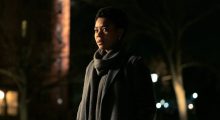
Master, the debut feature by Mariama Diallo, takes place at the fictional Ancaster College, situated on land once occupied by gallows poles during the Salem witch trials. Blending horror and thriller elements with a critique of racism and privilege, the film follows numerous characters as the college’s façade of gentility begins to unravel. Mixing genres and following a large group of characters means the film could have gone in numerous directions, and editors Jennifer Lee and Maya Maffioli discuss the various incarnations the film assumed throughout the editing process. Filmmaker: How and why did you wind up being the editor […]
-
“You Have to Become Vulnerable With Your Director Before You Can Go On Set”: DP Benjamin Loeb on After Yang

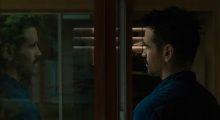
Like Columbus before it, Kogonada’s After Yang tackles its heady subject matter—including, in this case, a climate catastrophe and existential questions about the nature of humanity and memory that arise from its sci-fi setting—only obliquely, through composition and framing. Cinematographer Benjamin Loeb explained the significance of emptiness and space to cinema and the love he and Kogonada share for Ozu. Filmmaker: How and why did you wind up being the cinematographer of your film? What were the factors and attributes that led to your being hired for this job? Loeb: Honestly, I believe I was the unicorn of the interviews and came in very […]
-
“Given Enough Time and Space, Any Difficult Scene Can Be Solved”: Editors Jean Tsien and Aldo Velasco on Free Chol Soo Lee

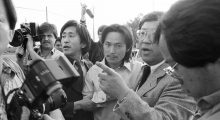
With Free Chol Soo Lee, directors Julie Ha and Eugene Yi examine the life and legacy of Chol Soo Lee, a Korean immigrant wrongfully convicted of committing a murder in San Francisco’s Chinatown at the age of 20 due to the false testimony of white tourists. When journalist K.W. Lee took an interest in Lee’s case, it spearheaded a wave of nation-wide pan-Asian activism. Editors Jean Tsien and Aldo Velasco and co-editor Anita Yu discuss how their understanding of their subject grew over time and how they ultimately decided to zero in on the film’s narrative trajectory. Filmmaker: How and why […]
-
“One of the Thrills of Shooting Horror Is You Can Get Quite Expressionistic With Color and Pattern”: DP Charlotte Hornsby on Master



In Master, a student at the fictional Ancaster College, situated on land once used for gallows poles during the Salem witch trials, begins to suspect that the school is haunted and gradually uncovers the secrets behind its progressive veneer. Although the film is loaded with social critique, it operates as a horror film, which allowed cinematographer Charlotte Hornsby room to comfortably deviate from realism in crafting the film’s look. Below, she discusses the influence of filmmakers like Ingmar Bergman and Joanna Hogg and how the film’s aesthetic changes as the narrative unravels. Filmmaker: How and why did you wind up being […]
-
“I Was Interested in Enhancing Spontaneous Observational Moments That Had a Strong Sense of Truth Behind the Avatar Embodiments”: Editor Joe Hunting on We Met in Virtual Reality


Joe Hunting directed, shot, edited and produced We Met in Virtual Reality, a documentary shot within virtual reality that follows a number of couples who met in VR while in lockdown during the COVID pandemic. Below, Hunting discusses what his subjects taught him about the VR space and how he edited the film to try to make audiences forget they were in VR. Filmmaker: How and why did you wind up being the editor of your film? What were the factors and attributes that led to your being hired for this job? Hunting: It was valuable for me to review and […]
-
“What Does ‘Quiet’ Sound Like When You’re Trying to Express the Correct Emotion?”: Editor Michael Block on Watcher


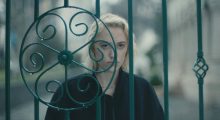
Watcher is a psychological thriller that follows Julia, an American woman who moves to Romania when her husband receives a work opportunity. After seeing a neighbor watching her, Julia begins to think she is being stalked by the serial killer known as “The Spider” that is currently on the loose. Editor Michael Block explained how he led the audience to experience events the same way as its protagonist, the creative compositing in the film, and the different kinds of quiet in the sound design. Filmmaker: How and why did you wind up being the editor of your film? What were […]
-
“Christine [Choy] Has Always Been a Person Who Puts Her Ideals into Action”: The Exiles Directors Violet Columbus and Ben Klein

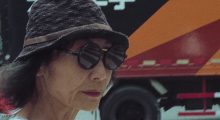
The first rule of documentary film? “Lie to everyone.” This from no less an authority (and anti-authority) than Christine Choy, the Oscar-nominated filmmaker (Who Killed Vincent Chin?) and educator (NYU, Cornell, Yale, etc.), founding director of Third World Newsreel, and straight-shooting (no pun intended) civil rights rabble-rouser. (Once during the US Film and Video Festival – soon to be rebranded Sundance – Choy even pulled Robert Redford aside to bluntly ask what was up with all the white people and white snow.) And now she is the cigarette-puffing central character in Violet Columbus and Ben Klein’s The Exiles, which executive produced […]
-
“Shooting Digitally Means Not Having to Play It Safe”: DP Doug Emmett on 892


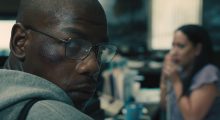
In 892, the debut film by Aby Damaris Corbin, a desperate former US Marine, driven nearly to homelessness by lack of resources and a stifling bureaucracy, decides to take hostages at a bank—but not because he wants money. What he wants instead is for people to hear his story and acknowledge what he has been through. Much of the film takes place in a single location where artificial lighting was not possible; cinematographer Doug Emmett explains how he was able to overcome these challenges and give the film a realistic and consistent look. Filmmaker: How and why did you wind up […]
-
“One Way to Create a Natural Flow in Sequences Is to Be Very Mindful of Eye Trace”: Editor Chris Witt on 892



Based on a true story, 892 depicts a veteran who struggles to reintegrate into civilian life and, after having his dignity whittled down by financial precarity and a society unreceptive to his needs, he decides to hold up a bank. Below, editor Chris Witt discusses how he subtly adjusted the movie’s pace, drew on Greek tragedy to make the final act as moving as possible, and shaping Michael Kenneth Williams’ final performance. Filmmaker: How and why did you wind up being the editor of your film? What were the factors and attributes that led to your being hired for this job? […]
